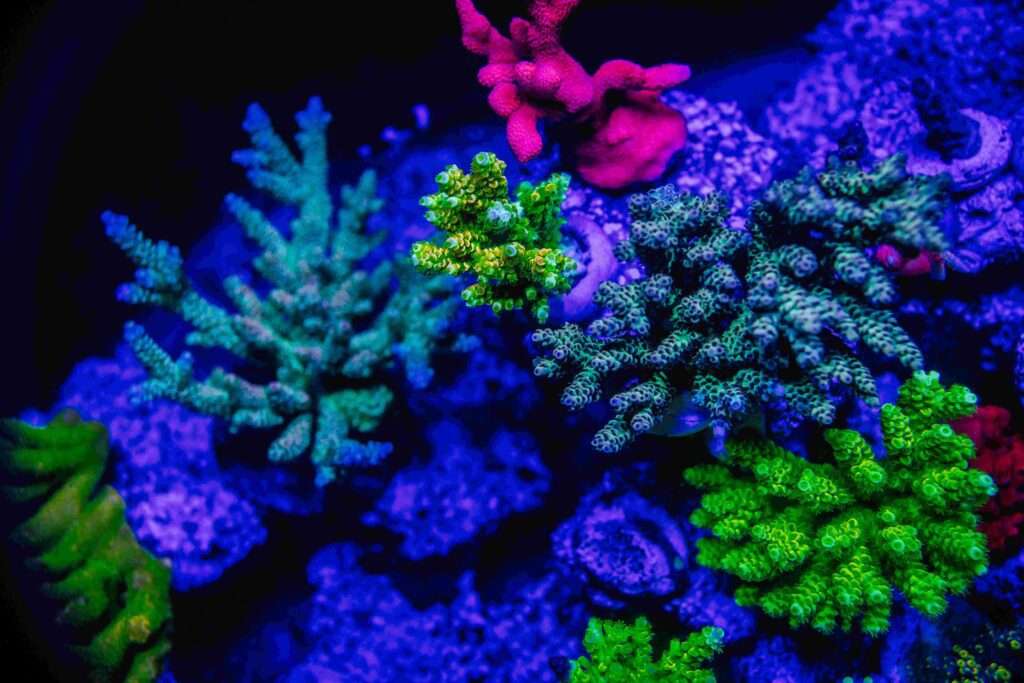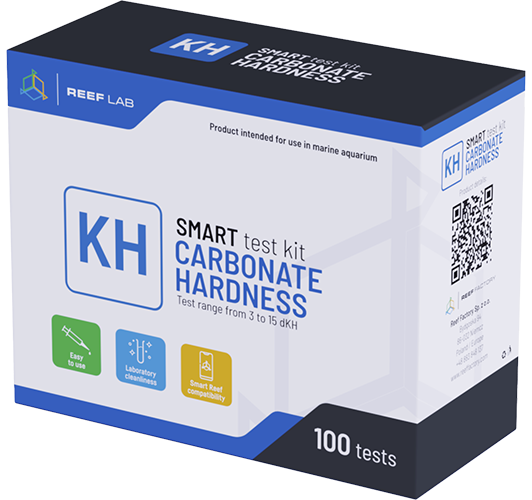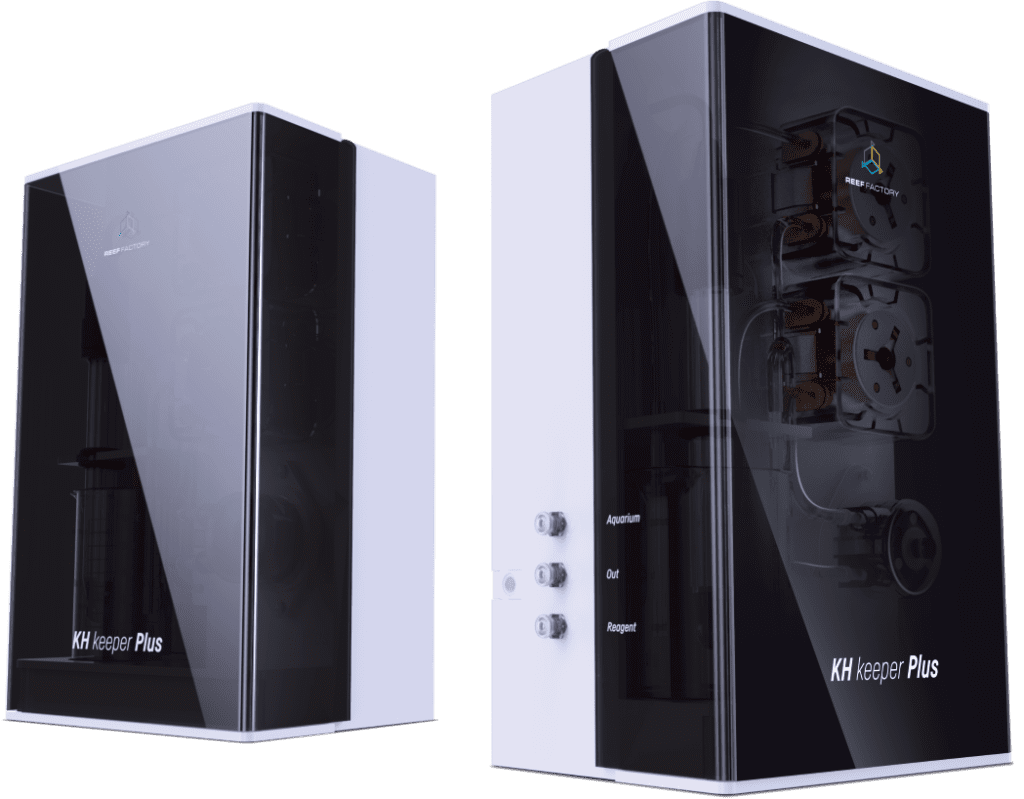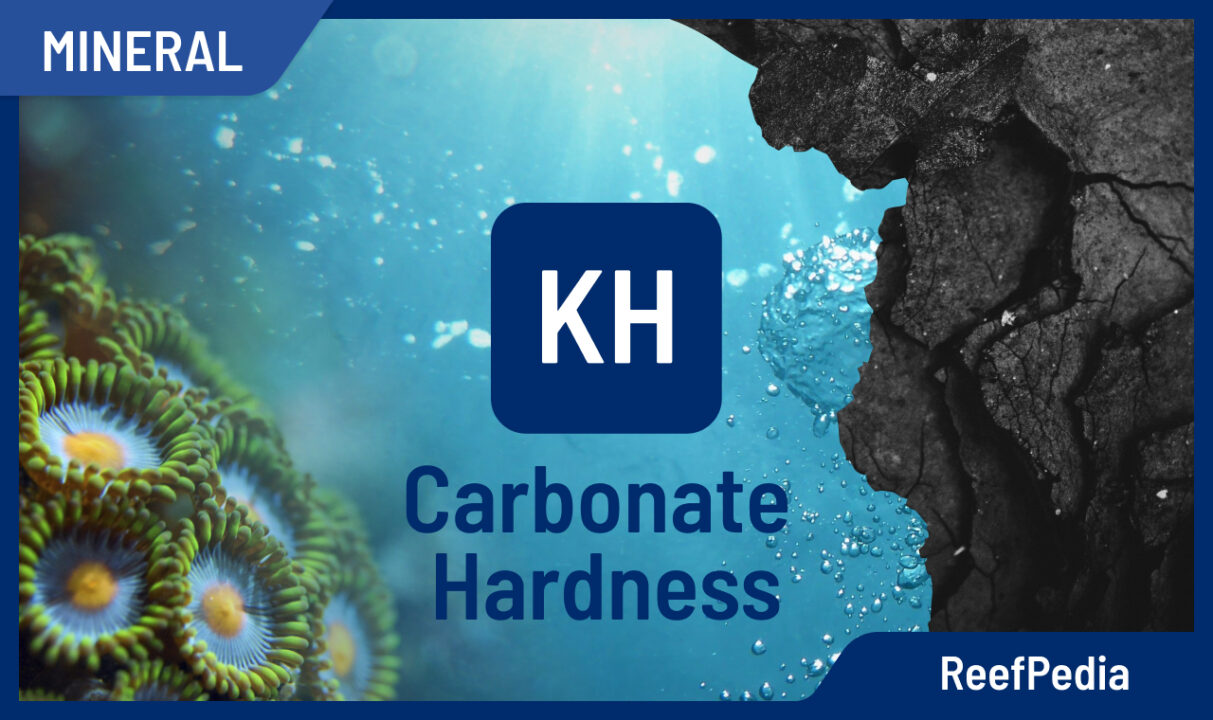Table of Contents
What is Carbonate Hardness (KH)?
Carbonate Hardness (KH) is associated with the presence of carbonates (CO32-) and bicarbonates (HCO3–) in water.Both carbonates and bicarbonates contain carbon (C) and oxygen (O) in their structure. They are ions derived from the same acid, carbonic acid (H2CO3).
In marine aquariums, the terms “carbonate hardness” and “alkalinity” are often used interchangeably. This is closely related to the water buffering capacity, and consequently, maintaining a stable pH level in the aquarium. In short, buffering refers to the ability to maintain a stable pH.
You can learn more about the relationship between KH and pH, as well as the role of pH in a marine aquarium, in the articles: The Relationship between KH and pH (SOON) and The Role of pH in a Marine Aquarium. However, it is essential to keep in mind that in chemistry, carbonate hardness and alkalinity are two separate terms.
Carbonate Hardness – importance in seawater
KH is one of the key parameters in marine water. Its value, in essence, is not crucial; it gains significance through interaction with parameters such as salinity, calcium ions, and magnesium ions. The appropriate level of KH in a marine aquarium allows corals to properly build their skeletons and exhibit vibrant colors.
Carbonate Hardness – role in marine aquaristics
Biological processes (coral skeleton growth)
The primary building compound for corals is carbonate, for example, calcium carbonate (Ca(CO3)2). Two components are required for its formation: positively charged calcium ions (Ca2+) and negatively charged carbonate ions (CO32-) or bicarbonate ions (HCO3–). In the process of coral skeleton formation, it is crucial that one carbonate ion must combine with a calcium or magnesium ion. You can find more information on the growth of coral skeletons in a dedicated article.
Coral coloration
Incorrect KH values lead to the loss of color in corals. This is associated with several factors:
- Stress: improper KH level stresses marine animals, corals lose zooxanthellae, which are among others responsible for coloring.
- Calcium fluctuations: KH affects the maintenance of stable calcium levels. Improper calcium levels contribute to coral bleaching.

Carbonate Hardness – issues related to deficiency and excess in seawater
In the case of carbonate hardness (KH), it is crucial for the level of this parameter to remain stable. For most corals, the recommended KH level ranges between 8-12 dKH. SPS corals, in particular, do not tolerate daily fluctuations in KH levels. Regular and cyclical measurements of this parameter are important. Daily safe fluctuations in KH levels are 0.3 dKH. Changes in this parameter can lead to the bleaching of hard corals.
Both too high and too low values of the KH parameter can lead to various problems in corals. Remember to lower/raise the KH level slowly – if possible, not more than 0.3 dKH per day.
Carbonate Hardness and the proper level
It is important to regularly monitor KH level and maintain it at the appropriate level. Regular monitoring and stabilization of carbonate hardness to the recommended reference values are fundamental for a successful reef aquarium. We recommend maintaining KH at a level of 7-9 °dKH, with the optimal value dependent on the coral population in your aquarium:
- reef tank with corals SPS: 6.5 – 7.5 °dkH
- reef tank with mixed corals: 7.0 – 9.0 °dkH
Carbonate Hardness – methods of measurement
You can control the KH parameter in several ways:
Method I: systematically testing the carbonate content in seawater at home using drop tests available on the market.

Method II: using devices enabling automatic measurement of KH values.

Carbonate Hardness – indicators of improper levels in a marine aquarium
Most animals in a marine aquarium quickly respond to carbonate hardness values that are either too low or too high. This response typically involves reduced growth or tissue dissolution. SPS corals, especially the Acropora species, do not tolerate daily fluctuations in KH levels exceeding 0.7-1 dKH.
Fluctuations in carbonate hardness affect other parameters such as calcium, magnesium, and salinity. Both too high and too low carbonate hardness always have a direct impact on calcium-forming elements: calcium and magnesium, leading to a decrease in the growth of coral skeletons or tissue dissolution.
Recommendations
To ensure the appropriate level of carbonate hardness in your aquarium, you should regularly test it.
Too high a value of the KH parameter can lead to many problems in corals. Remember to lower the KH level slowly – if possible, by no more than 0.3 dKH per day.
The most common reasons for exceeding the recommended KH level:
- too large doses of liquids dispensed,
- incorrectly prepared salt,
- use of cement adhesives.
Find and eliminate the cause of the problem and lower the value of this parameter in the water. Perform up to 6 water changes. It is recommended to exchange approximately 15% of the aquarium water during each change until the recommended value of this parameter is achieved. The water prepared for replacement must have the appropriate target salinity level. Use salt with proper parameters and composition suitable for conducting an ICP test.
Too low a value of the KH parameter can lead to various problems in animals, especially SPS corals. If the carbonate hardness level is below 6.5 dKH, it is recommended to use products containing KH buffers to bring its level back to balance.
About author

Magdalena Metzler
Privately, I am a mother and a lover of nature and sport. My main interest is quantum chemistry, which hides a whole lot of unsolved mysteries and connections, which is extremely exciting from a scientific point of view.
In my scientific career, I have conducted international projects focused on innovative solutions for many branches of business, e.g. automotive, construction, and now, of course, marine aquaristics.
Working at Reef Factory gave me a passion for marine aquaristics, which I can develop every day, building a chemistry department and creating products that will help aquarists take care of tanks and ensure the highest safety of animals. One of the most exciting memories of working at Reef Factory is the commissioning of the ICP-OES spectrometer, which analyzes the elemental composition of seawater. The method of analysis in ICP is based on an analytical technique, which is a combination of my passion for quantum chemistry and marine aquaristics.
I hope you find my articles on ReefPedia interesting and helpful! Happy reading :))

